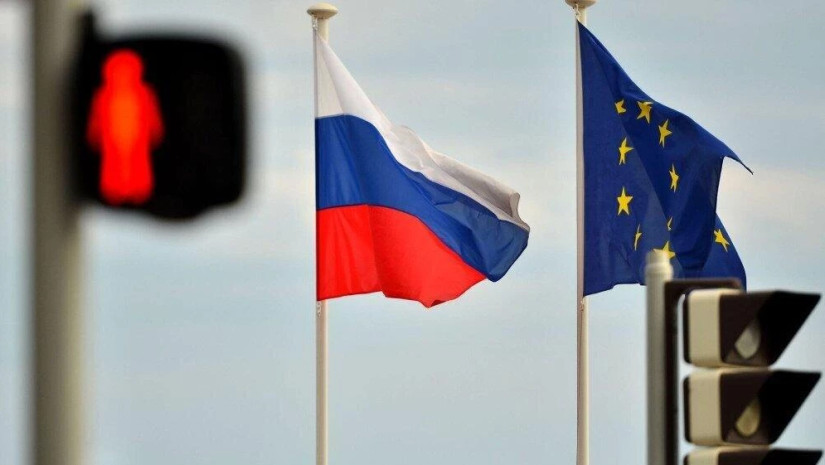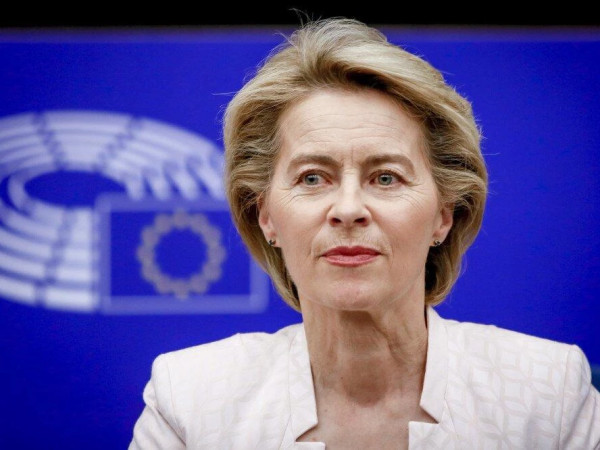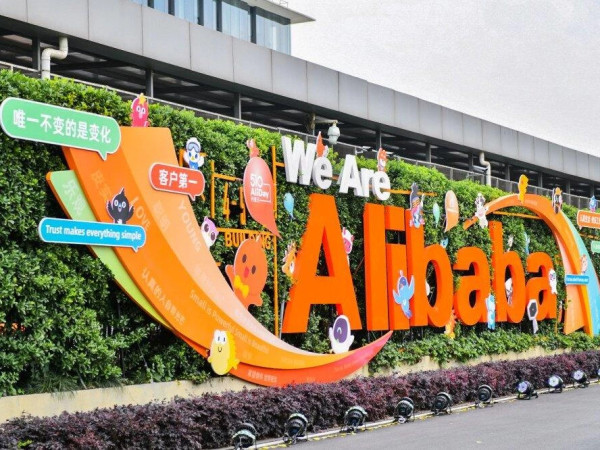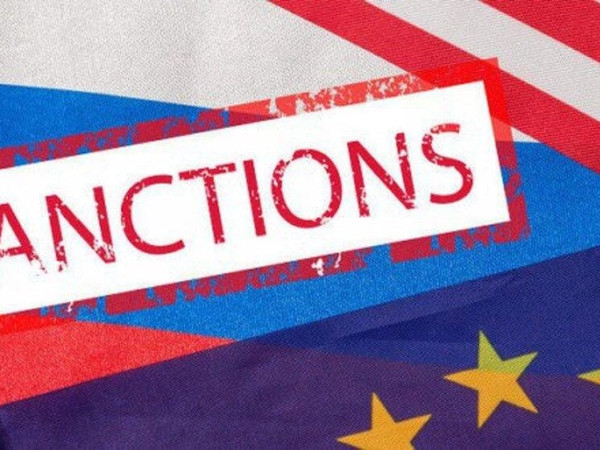European Union leaders ended their year much as it started, with a meeting focused on Russia's war in Ukraine.
At a European Council summit in Brussels on Thursday, the latest developments in the war and ways to help Ukraine get through this winter were high on the agenda.
Fresh sanctions on Moscow were approved despite disagreements over easing the export of Russian agricultural products and fertilizers through European ports. EU leaders also reached an agreement on a 15% minimum tax on large, multinational businesses.
EU's ninth round of sanctions
An agreement was reached over a new package of sanctions against Russia which is set to be confirmed in writing on Friday.
Full details were not revealed but the sanctions are expected to include travel bans and asset freezes on close to 200 more Russian officials and military officers, as proposed by the European Commission last week.
The bloc is also likely to ban the delivery of drone engines to both Russia and Iran, which has been accused of providing "kamikaze" drones for deployment against Ukrainian civilian targets.
Pleas from some countries such as the Netherlands and Belgium to be exempt from previous sanctions on importing Russian fertilizer were discussed in sideline meetings after threatening to hold up the new sanctions.
Poland and some Baltic states were concerned relaxing them would allow Russian oligarchs who own fertilizer businesses to dodge EU sanctions against them.
"Ambassadors agreed in principle on a sanctions package against Russia as part of the EU's ongoing support for Ukraine," the EU's Czech presidency tweeted.
Minimum tax rate deal approved despite opposition
The bloc also gave its approval to join the international plan, with almost 140 countries signed up, to set a minimum tax rate of 15% on multinational businesses.
German Chancellor Olaf Scholz called it a rare moment of satisfaction. The agreement aims to stop countries from slashing taxes to attract companies.
The plan had been met with opposition from Poland.
Polish Prime Minister Mateusz Morawiecki accused the EU of blackmailing his country by linking the tax plan with an €18-billion ($19-billion) package of financial aid for Ukraine.
"Combining aid for Ukraine with such distant topics which have nothing to do with aid like corporate tax is unnecessary, it is a mistake and an attempt at blackmail," Morawiecki said.
EU facing subsidy race with US
French President Emmanuel Macron said Thursday that the EU would have to move more quickly to head off the threat to its industry from planned US subsidies.
Arriving at the EU summit in Brussels, Macron said the leaders would discuss their response to US President Joe Biden's Inflation Reduction Act.
"To maintain fair competition," Macron said, Europe must simplify its own subsidy rules faster "to respond, to be the equivalent of what the Americans have done."
The $430 billion act, which grants consumers tax credits for US-produced electric vehicles and other green products, has triggered fears it could disadvantage EU-based companies and tempt businesses to relocate to the United States.
Brussels has previously warned the subsidies might violate World Trade Organization rules. But, with US President Joe Biden refusing to change course beyond some promised "tweaks".
EU Commission President Ursula von der Leyen proposed ahead of the summit to loosen state aid rules in renewable energy and clean tech to help the block compete with the US.
On Wednesday German Chancellor Olaf Scholz, whose country is the EU's main car exporter, Europe was united in the dispute, but should solve it through talks "rather than a big conflict".
Corruption in the European Parliament
Also, overshadowing the summit was the corruption scandal in the EU parliament.
Days before the EU leaders meeting, Belgian prosecutors charged Eva Kaili, a Greek member of the European Parliament, and three others with allegedly accepting bribes from Qatar in exchange for promoting policies friendly to the Gulf state.
The European Union first needs to know all the relevant facts and find out about all the persons involved in an ongoing corruption probe by Belgian authorities linked to Qatar, French President Emmanuel Macron said.
Macron plans to return to Qatar on Sunday to watch France play Argentina in the World Cup final, DW reports.















